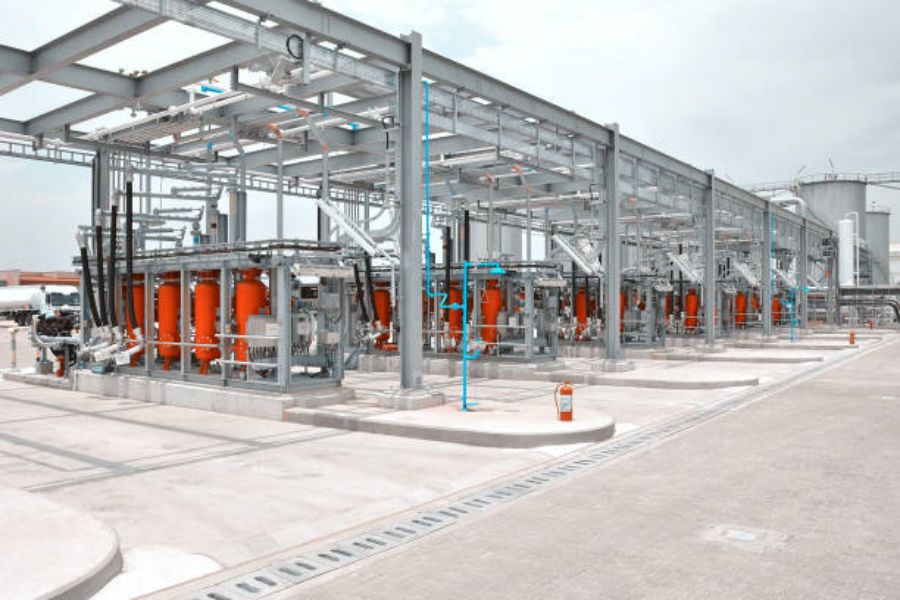Maximize Efficiency and Extend the Lifespan of Your Equipment with a condenser cooler
As technology continues to advance, the need for efficient cooling systems has become increasingly important. One such cooling system that is widely used in various industries is the condenser cooler. In this comprehensive guide, we will explore the different aspects of condenser coolers, how they work, and why they are crucial for maintaining optimal performance in your equipment.
What is a Condenser Cooler?
A condenser cooler is a device that removes heat from a fluid or gas by condensing it into a liquid state. It is commonly used in HVAC systems, power plants, refrigeration units, and other industrial applications. The primary purpose of a condenser cooler is to dissipate the heat generated by the equipment, preventing overheating and ensuring efficient operation.
How Does a Condenser Cooler Work?
Condenser coolers work on the principle of heat transfer. The process starts with the hot fluid or gas entering the condenser, where it is exposed to a cool surface. As the temperature of the fluid or gas decreases, it undergoes a phase change and transforms into a liquid. This liquid is then collected and removed from the system, allowing the process to repeat.
The Importance of Condenser Coolers
Condenser coolers play a vital role in maintaining the performance and longevity of various equipment. Here are some key reasons why condenser coolers are important:
1. Efficient Heat Dissipation
One of the primary functions of a condenser cooler is to dissipate heat generated by the equipment. By removing excess heat, condenser coolers help prevent overheating, which can lead to equipment failure or reduced efficiency. An efficient cooling system ensures that the equipment operates at optimal temperatures, maximizing its performance and minimizing the risk of damage.
2. Energy Savings
By effectively cooling the equipment, condenser coolers help reduce energy consumption. When the equipment operates at lower temperatures, it requires less energy to maintain its performance. This not only leads to cost savings but also contributes to a more sustainable and eco-friendly operation.
3. Extended Equipment Lifespan
Overheating can significantly impact the lifespan of equipment. By maintaining proper temperature levels, condenser coolers help extend the lifespan of your equipment, reducing the need for frequent repairs or replacements. This not only saves you money but also ensures uninterrupted operation and productivity.
4. Improved System Efficiency
Condenser coolers improve the overall efficiency of the system by removing heat efficiently. When the equipment operates at optimal temperatures, it can perform its intended functions more effectively. This leads to improved productivity, reduced downtime, and better overall system performance.
Types of Condenser Coolers
There are several types of condenser coolers available, each designed to meet specific cooling requirements. Here are some common types:
1. Air-Cooled Condenser Coolers
As the name suggests, air-cooled condenser coolers use ambient air to dissipate heat. These coolers consist of finned tubes that are exposed to the surrounding air. The heat from the fluid or gas is transferred to the tubes, and the air blows over them, cooling them down. Air-cooled condenser coolers are widely used in HVAC systems, refrigeration units, and small-scale applications.
2. Water-Cooled Condenser Coolers
Water-cooled condenser coolers utilize water as the cooling medium. These coolers have tubes through which water flows, absorbing the heat from the fluid or gas. The heated water is then released into a cooling tower, where it is cooled before being recirculated. Water-cooled condenser coolers are commonly used in power plants, large-scale industrial applications, and systems with high heat loads.
3. Evaporative Condenser Coolers
Evaporative condenser coolers combine the principles of air and water cooling. These coolers have a water spray system that cools the hot fluid or gas. The water evaporates, taking away the heat and reducing the temperature of the fluid or gas. Evaporative condenser coolers are often used in refrigeration systems, where precise temperature control is required.
Maintenance and Care
Proper maintenance and care are essential to ensure the optimal performance and longevity of condenser coolers. Here are some tips to keep in mind:
1. Regular Cleaning
Regularly clean the condenser cooler to remove dirt, debris, and other contaminants that can hinder its performance. This includes cleaning the fins, tubes, and any filters or screens. A clean condenser cooler allows for better heat transfer and efficient cooling.
2. Inspect for Damage
Periodically inspect the condenser cooler for any signs of damage, such as leaks, corrosion, or bent fins. Addressing these issues promptly can prevent further damage and ensure the proper functioning of the cooler.
3. Check Fluid Levels
If your condenser cooler uses a liquid coolant, regularly check the fluid levels and top up if necessary. Inadequate fluid levels can lead to inefficient cooling and potential damage to the equipment.
4. Scheduled Maintenance
Follow the manufacturer's recommended maintenance schedule for your condenser cooler. This may include tasks such as lubricating moving parts, checking electrical connections, and inspecting the overall condition of the cooler. Regular maintenance helps identify potential issues before they escalate and ensures optimal performance.
In Conclusion
A condenser cooler is an essential component in various cooling systems. Whether it's an air-cooled, water-cooled, or evaporative condenser cooler, these devices play a crucial role in maintaining equipment performance, energy efficiency, and overall system reliability. By understanding how condenser coolers work and implementing proper maintenance practices, you can maximize the efficiency and lifespan of your equipment, saving both time and money in the long run.
